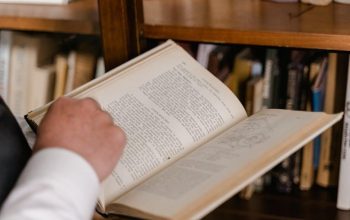
Logical Puzzles with Answers PDF⁚ An Overview
Logical puzzles challenge our minds‚ fostering critical thinking. A PDF format offers convenient access to a plethora of these puzzles. These collections provide brain-teasing challenges‚ often including answers for self-assessment and learning. They range in complexity‚ suitable for various skill levels.

Types of Logical Puzzles
Logical puzzles encompass diverse forms‚ each testing different cognitive skills. Common types include deductive reasoning‚ lateral thinking‚ and mathematical puzzles. These varied puzzle types cater to different preferences and strengths‚ offering a comprehensive mental workout. Explore them!
Deductive Reasoning Puzzles
Deductive reasoning puzzles are a cornerstone of logical challenges‚ demanding the application of general rules to specific scenarios. These puzzles typically present a set of premises‚ and the solver must derive a certain conclusion based on those premises. This type of puzzle hones analytical skills and the ability to draw valid inferences.
Solving deductive puzzles involves careful consideration of the given information‚ identifying key relationships‚ and eliminating possibilities that contradict the established facts. Classic examples include logic grid puzzles‚ where a matrix is used to track relationships between various elements‚ leading to a single correct solution through systematic deduction.
Mastering deductive reasoning is invaluable. These puzzles enhance clarity.
Lateral Thinking Puzzles
Lateral thinking puzzles encourage creative problem-solving by requiring individuals to approach challenges from unconventional angles. Unlike deductive puzzles that rely on strict logic‚ these puzzles often involve indirect and imaginative reasoning. They frequently present scenarios that seem paradoxical or lack obvious solutions‚ prompting solvers to think outside the box.
The key to solving lateral thinking puzzles lies in identifying hidden assumptions and exploring alternative perspectives. Brainstorming unexpected possibilities and questioning the given information are crucial steps. These puzzles often involve a moment of insight or “aha!” as the solution suddenly becomes clear after a period of unconventional exploration.
Lateral thinking puzzles are beneficial for boosting creativity. They encourage individuals to challenge assumptions. They improve problem-solving skills.
Mathematical Logic Puzzles
Mathematical logic puzzles combine mathematical principles with logical reasoning to create engaging brain teasers. These puzzles often involve numerical patterns‚ geometric shapes‚ or algebraic concepts‚ requiring solvers to apply mathematical knowledge to deduce solutions. They differ from pure mathematical problems by emphasizing logical deduction and problem-solving strategies rather than rote calculations.
Solving mathematical logic puzzles enhances both mathematical proficiency and logical thinking skills. It requires individuals to analyze the given information. They must identify relevant mathematical relationships. They must construct logical arguments to arrive at the correct answer. These puzzles can range in difficulty from simple arithmetic riddles to complex problems involving number theory or combinatorics.
These puzzles are valuable tools for mathematics education. They promote critical thinking. They foster a deeper understanding of mathematical concepts. They provide an enjoyable way to exercise the mind.

Benefits of Solving Logical Puzzles
Logical puzzles offer numerous cognitive advantages. They enhance reasoning‚ improve problem-solving‚ and boost creativity. Regular engagement with these puzzles can lead to sharper minds and better decision-making skills‚ benefiting individuals across various domains.
Cognitive Skill Enhancement
Engaging with logical puzzles significantly enhances a range of cognitive skills. These puzzles demand critical thinking‚ requiring individuals to analyze information‚ identify patterns‚ and draw logical conclusions. The process strengthens neural pathways‚ improving memory and attention span. Solving puzzles regularly promotes cognitive flexibility‚ allowing individuals to adapt to new situations and think outside the box. Moreover‚ these activities foster improved concentration and focus‚ crucial for academic and professional success.
Furthermore‚ tackling logical challenges boosts problem-solving abilities‚ as individuals learn to approach complex issues systematically. The satisfaction of solving a difficult puzzle releases dopamine‚ reinforcing the learning process and encouraging continued engagement. This consistent mental exercise helps to maintain cognitive sharpness and resilience‚ potentially delaying age-related cognitive decline. Ultimately‚ the regular practice of solving logical puzzles contributes to a more agile and efficient mind‚ capable of handling various intellectual tasks with greater ease.
Improved Problem-Solving Abilities
Logical puzzles are instrumental in honing problem-solving skills. They require a structured approach‚ encouraging individuals to break down complex problems into smaller‚ more manageable components. This process involves identifying key information‚ recognizing patterns‚ and formulating potential solutions. Solving puzzles cultivates analytical thinking‚ enabling individuals to assess different strategies and choose the most effective one. Through trial and error‚ individuals learn to refine their methods and adapt to new challenges.
The ability to approach problems logically translates into various real-world scenarios‚ from academic pursuits to professional endeavors. Improved problem-solving skills enhance decision-making‚ allowing individuals to make informed choices based on careful consideration. Moreover‚ these skills foster creativity and innovation‚ as individuals become more adept at generating novel solutions. The confidence gained from successfully solving logical puzzles empowers individuals to tackle increasingly complex problems with greater assurance. Regular engagement with these puzzles strengthens cognitive resilience and improves the ability to overcome obstacles effectively.
Boosting Creativity and Imagination
Logical puzzles serve as a powerful catalyst for boosting creativity and imagination. Unlike routine tasks‚ puzzles often demand unconventional thinking‚ pushing individuals beyond familiar mental pathways. By encouraging exploration of different perspectives and approaches‚ these puzzles foster the generation of original ideas. Lateral thinking puzzles‚ in particular‚ challenge assumptions and invite individuals to consider alternative possibilities. This process of mental exploration expands imaginative horizons and enhances the ability to conceive novel solutions.
Engaging with logical puzzles stimulates the brain’s creative centers‚ promoting a more flexible and adaptable mindset. As individuals tackle puzzles that lack straightforward solutions‚ they learn to embrace ambiguity and experiment with different strategies. This iterative process of trial and error nurtures a sense of curiosity and encourages individuals to think outside the box. Furthermore‚ the satisfaction derived from solving a challenging puzzle reinforces creative confidence‚ empowering individuals to approach other creative endeavors with greater enthusiasm and a willingness to take risks. The ability to see connections between seemingly unrelated concepts‚ a hallmark of creative thinking‚ is strengthened through consistent engagement with logical puzzles.
Resources for Logical Puzzles in PDF Format
Finding logical puzzles in PDF format is simple. Many websites offer free‚ downloadable puzzle collections. These resources cater to varying skill levels‚ providing hours of engaging mental exercise with convenient access and printable formats.
Websites Offering Free Downloadable PDFs
Several websites provide free‚ downloadable PDFs filled with logical puzzles. These sites often curate puzzles from various sources‚ offering a diverse range of challenges for all skill levels.
Math websites frequently have sections dedicated to logic puzzles‚ offering printable PDFs for educational purposes. Puzzle enthusiasts create their own websites where they share collections of logic problems‚ often with solutions included in separate files.
Educational platforms sometimes offer free samples or promotional materials in PDF format‚ which can include a variety of logic puzzles. These resources are invaluable for educators‚ students‚ and anyone seeking mental stimulation.
Before downloading‚ ensure the website is reputable and the PDF is safe. Many sites offer a wide array of options‚ from simple riddles to complex deductive reasoning challenges‚ all readily available for immediate download and enjoyment.
Collections of Logic Puzzles for Different Age Groups
Logic puzzles are available in collections designed for different age groups‚ ensuring that the challenges are appropriate and engaging. For younger children‚ puzzles often involve visual elements‚ simple deduction‚ and pattern recognition. These puzzles help develop foundational problem-solving skills.
Older children and teenagers benefit from more complex puzzles involving mathematical concepts‚ lateral thinking‚ and deductive reasoning. PDF collections tailored for this age group can enhance critical thinking abilities and improve academic performance.
Adults can find collections of challenging logic puzzles that require advanced reasoning skills and creative problem-solving. These puzzles often involve intricate scenarios‚ mathematical formulas‚ and complex relationships.
Many PDFs are organized by difficulty level‚ allowing users to gradually increase the complexity of the puzzles they solve. This approach makes it easy for individuals of all ages to find suitable challenges and improve their cognitive abilities.

Examples of Logical Puzzles with Answers
Logical puzzles encompass a wide array of challenges designed to test different cognitive skills. One classic example involves a scenario where you must determine who is telling the truth based on a series of statements. These puzzles often require careful analysis and deductive reasoning.
Another common type of logic puzzle involves mathematical patterns and sequences. These puzzles challenge your ability to identify numerical relationships and predict future elements in a series.
Lateral thinking puzzles present unconventional problems that require creative solutions. These puzzles often involve wordplay‚ riddles‚ or unexpected twists. They encourage you to think outside the box and challenge assumptions.
Many logical puzzles involve spatial reasoning‚ where you must visualize shapes‚ patterns‚ or arrangements. These puzzles can include tasks such as folding paper‚ arranging objects‚ or identifying hidden figures.
The key to solving these puzzles is to carefully analyze the information provided‚ identify relevant patterns‚ and apply logical reasoning to arrive at the correct solution.



